AI in Your Pocket – Introducing Mobile Artificial Intelligence Applications
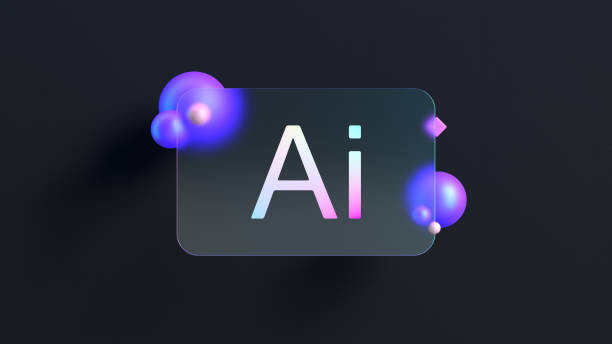
Today’s world is the world of #Artificial_Intelligence.
From self-driving cars to voice assistants, AI has increasingly permeated our lives.
One of the most significant aspects of this revolution is the availability of AI in the form of mobile AI applications.
These applications allow users to benefit from the power of AI anytime, anywhere.
Mobile AI applications offer a wide range of capabilities, including image recognition, natural language processing, language translation, content generation, and many more.
In this article, we will comprehensively review these applications, their uses, and the future they hold for us.
By using these applications, users can perform their daily tasks more easily and efficiently.
For example, a mobile AI application can help a user write emails, edit photos, or even learn a new language.
The purpose of this article is to provide a comprehensive yet understandable overview of mobile AI applications.
We will strive to explain complex concepts in simple language and answer common user questions.
By the end of this article, you will have a better understanding of what mobile AI applications are, how they work, and what their applications are.
Tired of losing customers due to poor e-commerce website design? With Rasaweb, solve this problem forever!
✅ Increase sales and visitor-to-customer conversion rate
✅ Smooth and engaging user experience for your customers⚡ Get free consultation
Internal Workings of Mobile AI Applications
![]()
How do mobile AI applications work? Behind the scenes, these applications use complex machine learning algorithms and neural networks.
These algorithms analyze vast amounts of data, identify patterns, and make decisions based on them.
For example, a facial recognition application uses neural networks to analyze numerous images of different faces and learns how to detect faces.
This process allows the application to identify faces in new images.
One of the main challenges in developing mobile AI applications is the limited computational resources on mobile devices.
To overcome this, developers use various techniques such as Lightweight Modeling and cloud processing.
Lightweight modeling means using simpler and more efficient AI algorithms that require fewer resources.
Cloud processing means transferring a portion of heavy processing to cloud servers.
This allows the application to benefit from more computational power without significantly increasing battery consumption.
Companies like Abar Arvan offer numerous cloud processing solutions that help developers in this area.
Mobile AI applications prioritize efficiency by employing these methods.
Diverse Applications of Mobile AI Applications
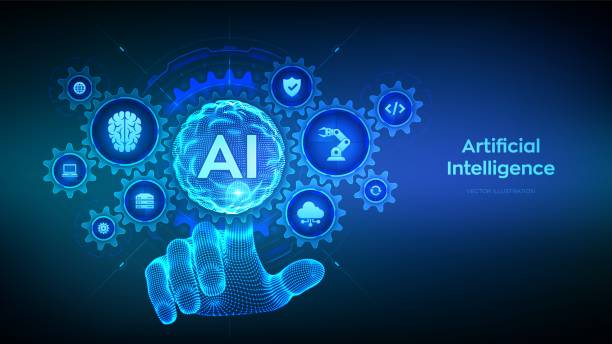
Mobile AI applications have diverse applications in various fields.
Here are some of the most important uses:
- Image Recognition Image recognition applications can identify objects, people, and scenes in images.
This capability has applications in various fields such as security, online shopping, and medical diagnosis. - Natural Language Processing Natural language processing applications can understand human language and respond to it.
This capability has applications in various fields such as language translation, voice assistants, and customer service. - Language Translation Language translation applications can translate text or speech from one language to another.
This capability is very useful for travel, business, and international communication. - Content Generation Content generation applications can produce text, images, or even videos.
This capability has applications in marketing, social media, and education. - Health and Medical: AI applications can assist in diagnosing diseases, providing medical recommendations, and managing individual health.
Mobile AI applications are revolutionizing many industries and are expected to play a more significant role in our lives in the future.
| Usage | Description |
|---|---|
| Image Recognition | Identifying objects and people in images |
| Natural Language Processing | Understanding and responding to human language |
| Language Translation | Translating text and speech between languages |
| Content Generation | Creating text, images, and videos |
Choosing the Right Mobile AI Application
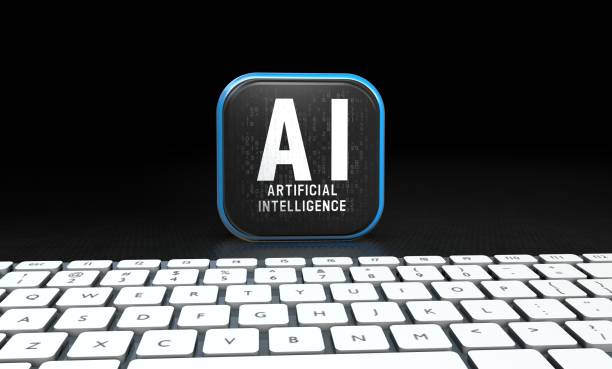
Given the wide variety of mobile AI applications, choosing the right one can be challenging.
Here are some key tips for selecting the appropriate application:
- Define your needs First and foremost, determine what type of AI capabilities you require.
Are you looking for an application for image recognition? Or an application for language translation? - Check user reviews Before installing any application, check other users’ reviews about it.
These reviews can help you become aware of the application’s strengths and weaknesses. - Review the privacy policy Ensure that the application has a transparent privacy policy and properly protects your information.
- Free trial If possible, try the free trial version before purchasing the application to ensure its performance.
By following these tips, you can choose the right mobile AI application for yourself and benefit from its advantages.
Remember that mobile AI applications are powerful tools and should be used with caution and awareness.
How much does losing business leads due to an unprofessional website cost you? Solve this problem forever with professional corporate website design by Rasaweb!
✅ Increase credibility and trust of potential customers
✅ Easier acquisition of new business leads
⚡ Get a free consultation now!
Privacy and Security Concerns in Mobile AI Applications

The use of mobile AI applications raises concerns about privacy and security.
These applications often access sensitive information such as user images, sounds, and location.
Therefore, it is important for users to be aware of how this information is collected, stored, and used.
To mitigate these concerns, mobile AI application developers should take the following steps:
- Transparency The application’s privacy policy must be transparent and understandable.
- Security The application must use appropriate security measures to protect user information.
- Control Users should be able to control what information is collected and how it is used.
Mobile AI applications have increasingly permeated our lives, and understanding these risks and how to protect oneself from them is crucial.
The Future of Mobile AI Applications

The future of mobile AI applications is very bright.
With technological advancements, these applications will become more powerful, smarter, and more practical.
We can expect mobile AI applications to play a more significant role in various fields such as education, health, transportation, and entertainment in the future.
Some of the key trends shaping the future of mobile AI applications include:
- Deep Learning Deep learning is a powerful machine learning technique that enables applications to identify complex patterns in data.
- Edge Processing Edge processing refers to processing data on the mobile device instead of sending it to a cloud server.
This reduces latency and enhances privacy. - Explainable AI Explainable AI means that AI applications can explain how they arrived at a particular result.
This increases user trust in these applications.
Mobile AI applications have great potential to improve our lives, and we can expect to see more innovations in this field in the future.
Mobile AI applications are advancing every day and continue to offer newer features to users.
Prominent Examples of Mobile AI Applications in 2024
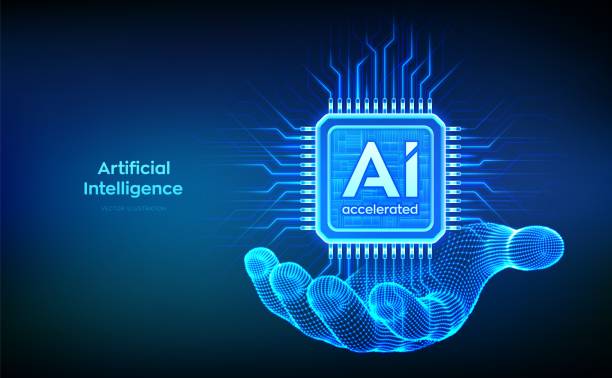
In 2024, several mobile AI applications are recognized as prominent examples.
These applications have attracted considerable attention by offering innovative and practical features.
Here are a few examples of these applications:
- Google Lens: This application uses AI to enable object identification, text translation, and searching for information related to images.
- Microsoft Translator: This application facilitates international communication with its real-time speech and text translation capabilities.
- FaceApp: This application uses neural networks to enable face modification in images.
- ELSA Speak: This application helps users improve their English pronunciation by providing personalized feedback.
These applications demonstrate that AI is becoming an integral part of our daily lives.
Mobile AI applications, by offering innovative solutions, help users perform various tasks and improve the user experience.
| Application Name | Main Use |
|---|---|
| Google Lens | Object recognition and text translation |
| Microsoft Translator | Real-time speech and text translation |
| FaceApp | Face modification in images |
| ELSA Speak | Improving English pronunciation |
Challenges in Developing Mobile AI Applications
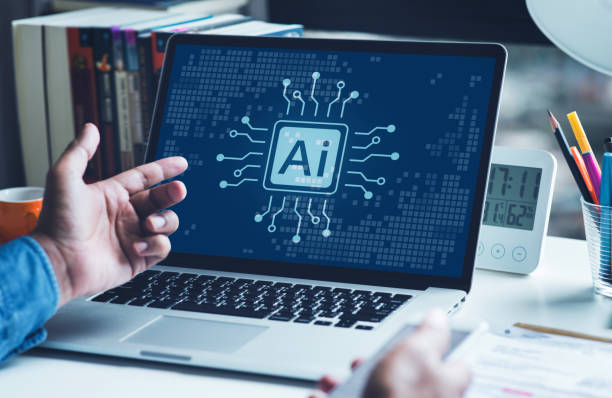
Developing mobile AI applications comes with several challenges.
One of the most significant challenges is the limited computational resources on mobile devices.
AI algorithms typically require high processing power, which may not be fully available on mobile devices.
To address this, developers must use various optimization techniques to adapt their algorithms to limited resources.
Another challenge is data collection and labeling.
AI algorithms require large, labeled datasets to learn and function correctly.
Collecting and labeling this data can be time-consuming and costly.
Furthermore, developers must also consider issues related to data privacy and security.
Despite these challenges, the development of mobile AI applications is an exciting and thriving field with great potential to improve our lives.
Mobile AI applications have made good progress by overcoming challenges.
Are you worried about losing customers because you don’t have a professional e-commerce website?
With e-commerce website design by Rasaweb, forget these worries!
✅ Significant increase in sales and visitor-to-customer conversion rate
✅ Professional and user-friendly design that builds customer trust
⚡ Get a free consultation from Rasaweb now!
Impact of Mobile AI Applications on Various Industries
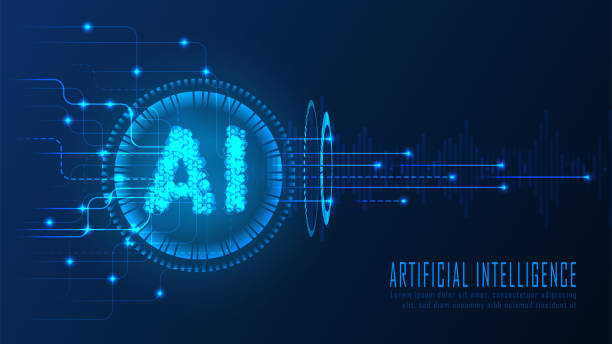
Mobile AI applications have had a significant impact on various industries.
In the healthcare industry, these applications can assist doctors in diagnosing diseases, providing medical recommendations, and managing individual health.
In the education industry, mobile AI applications can help students learn new concepts, practice skills, and receive personalized feedback.
In the retail industry, mobile AI applications can help customers find desired products, compare prices, and receive special offers.
In the transportation industry, mobile AI applications can assist drivers with navigation, traffic prediction, and improved safety.
Mobile AI applications are transforming various industries and are expected to play a more significant role in the global economy in the future.
Mobile AI applications, by providing innovative solutions, help companies and organizations improve productivity, reduce costs, and increase customer satisfaction.
Guide to Developing Mobile AI Applications (Step-by-Step)

Developing mobile AI applications requires careful planning and step-by-step execution.
Here is a comprehensive guide for developing mobile AI applications:
- Define the Problem First, you need to precisely define the problem you intend to solve using a mobile AI application.
- Data Collection Gather the necessary data for training AI algorithms.
- Data Preparation Prepare the data for training algorithms.
This includes cleaning, labeling, and transforming the data into the appropriate format. - Algorithm Selection Choose the appropriate AI algorithm to solve the problem.
- Algorithm Training Train the algorithm using the prepared data.
- Algorithm Evaluation Evaluate the algorithm’s performance and improve it if necessary.
- Application Implementation Implement the mobile application and integrate the AI algorithm into it.
- Testing and Deployment Thoroughly test the application and publish it on app stores.
Developing mobile AI applications is a complex process, but with careful planning and step-by-step execution, desired results can be achieved.
Mobile AI applications, with a well-defined and coherent plan, will be readily accessible to users.
Frequently Asked Questions
| No. | Question | Answer |
|---|---|---|
| 1 | What is a mobile AI application? | A mobile AI application is a program that utilizes Artificial Intelligence capabilities (such as machine learning, natural language processing, computer vision) to provide smarter and more automated experiences on mobile devices. |
| 2 | Why is AI important in mobile applications? | Its importance stems from increased efficiency, personalized user experience, task automation, improved decision-making, and the provision of innovative features like facial recognition or voice assistants. |
| 3 | What are some examples of mobile applications with AI? | Voice assistants (e.g., Siri, Google Assistant), navigation apps with real-time traffic (Google Maps), image filters (Snapchat, Instagram), language translation apps, and facial recognition applications. |
| 4 | What challenges exist in developing mobile AI applications? | Hardware limitations of mobile devices (processing power, battery), the need for large and high-quality data, user privacy protection, and the complexity of implementing AI models. |
| 5 | What is the role of machine learning in these applications? | Machine learning allows the application to learn from data, identify patterns, and improve its performance over time, such as in product recommendation systems or speech recognition. |
| 6 | Do mobile AI applications require an internet connection? | Many advanced AI capabilities require an internet connection and cloud processing, but some lighter models can also work “on-device” (without internet). |
| 7 | How does AI help improve user experience on mobile? | By personalizing content, predicting user needs, automating repetitive tasks, and providing more natural user interfaces like voice commands. |
| 8 | What is the difference between cloud AI and on-device AI in mobile? | Cloud AI uses powerful servers for processing (requires internet), while on-device AI performs processing directly on the phone itself (no internet needed, but with processing limitations). |
| 9 | What will be the future of mobile AI applications? | We expect to see increased personalization capabilities, deeper integration with phone sensors, development of smarter assistants, and advancements in on-device processing. |
| 10 | Which frameworks are popular for AI development in mobile? | TensorFlow Lite (for Android and iOS), Core ML (for iOS), PyTorch Mobile are among the popular frameworks for implementing AI models in mobile applications. |
And other services of Rasaweb advertising agency in the field of advertising
- Smart Advertising Campaign: A dedicated service for growth in customer behavior analysis based on proprietary programming.
- Smart Google Ads: A professional solution for improving SEO ranking with a focus on optimizing key pages.
- Smart SEO: A fast and efficient solution for user engagement, focusing on SEO-driven content strategy.
- Smart Custom Software: Designed for businesses looking to increase click-through rates through an SEO-driven content strategy.
- Smart Content Strategy: An innovative platform for improving customer behavior analysis with marketing automation.
And over a hundred other services in internet advertising, advertising consultation, and organizational solutions
Internet Advertising | Advertising Strategy | Advertorial
Resources
Top Mobile AI Applications
Best AI Applications for Android and iPhone
New AI Applications for Phones
Best Mobile AI Applications
📍 Tehran, Mirdamad Street, next to Bank Markazi, Kazeroun Jonoubi Alley, Ramin Alley, No. 6

